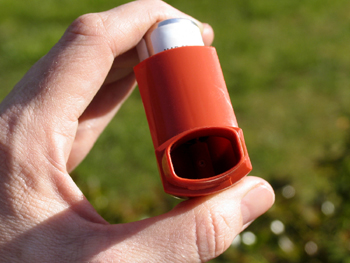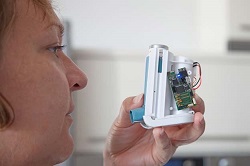Lungs have a good memory system — unfortunately
Pathogenic CD4+ T helper type 2 (Th2) cells, found in the lungs of humans and animals have been identified as responsible for initiating and perpetuating the allergic airway response. Recuperated mice present memory lymphocytes in lungs for the rest of their lives, with exposure to inhaled allergens reactivating lung CD4+ Th2 memory cells, leading to disease relapse. Factors underlying the survival and retention of these cells are not known. One possibility is that chemokine-chemokine receptor (CKR) interactions facilitate the retention of these memory CD4+ Th2 cells in the lungs. The 'Identification of key chemokine-chemokine receptor interactions that control the memory Th2 cells in allergic asthma' (TH2memory) project aimed to identify key chemokine-CKR interactions controlling the migration of Th2 cells and to define antigen-specific Th2 cells. After inducing acute disease in mice, the EU-funded project researchers waited at least four months for their recovery. They then used profiling and other techniques to compare chemokine and CKR expression in whole lungs from recovered and naive mice, as well as in animals during preliminary stages of their asthma attack. The levels of CKR gene expression were found not to distinguish lung memory cells in recovered mice, although other experimental data did reveal changes in gene expression profiles between groups. Some of these genes may enable the longevity of CD4+ Th2 memory cells in the lungs. Another two studies focusing on the mechanisms leading to the generation of Th2 memory cells were performed to better understand the nature of these cells. By shedding light on the factors playing a role in peripheral memory CD4+ Th2 cells, new treatment strategies can be developed to target immune-mediated diseases such as asthma, cancer and infectious diseases, as well as to contribute to enhanced vaccine development. The outcomes of TH2memory also have high socioeconomic impact potential: applied results can lead to a substantial reduction in high costs of health care associated with asthma and parasitic diseases.







